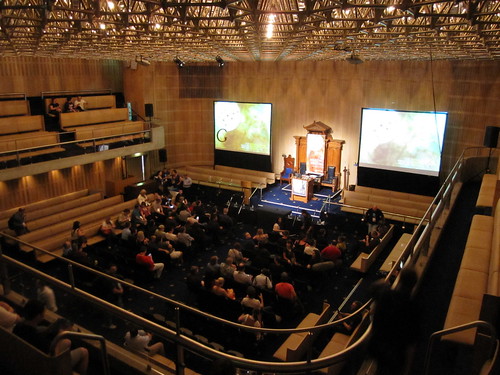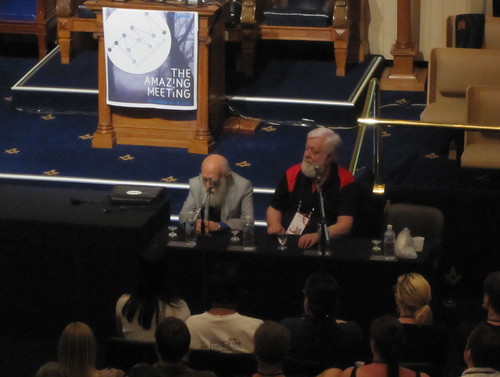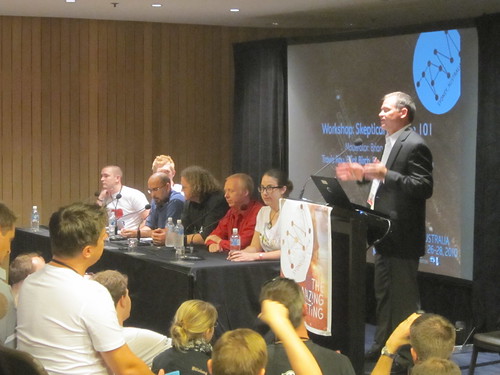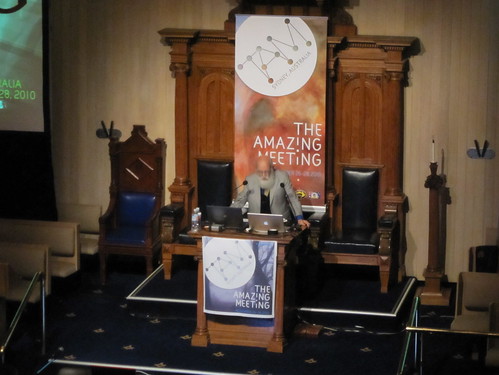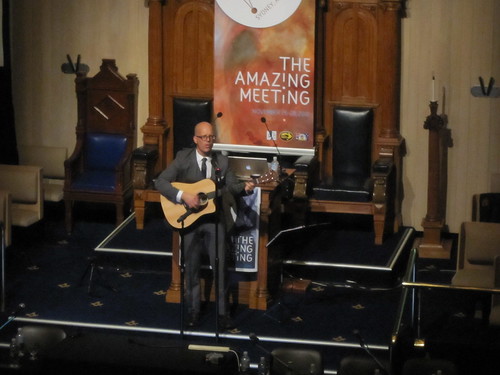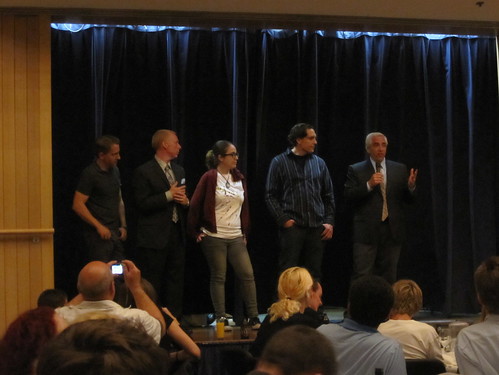Nadia recently told me about the Microaggressions blog that, as the name suggests, publishes microaggressions.
The cool thing about this blog is that it publishes user-submitted stories (microstories?) and doesn’t limit them to just racially motivated encounters (which is what the term was originally coined for).
The blog is a great place to vent so, if you have any episodes to share, please do so.
My Experience
The kind of microagression that I come across most has to do with my language abilities:
[Usually spoken in a surprised and attempted-complimentary but actually-patronizing tone of voice] “Your English is really good!”
English is my first language but there are always people who will assume that, because I’m from Pakistan or because I don’t look like the dominant Caucasian population, that couldn’t possibly be.
Though, since:
- I am male, largish in size (fat, not muscle, unfortunately), and whiter than the average Pakistani (so I don’t look “typically” South Asian);
- my English is really good; and
- I look and dress like a geek (sneakers, comfortable jeans, geeky t-shirt, Casio watch, glasses, bald, goatie…again, not “typically” South Asian)
not too many people say that to me directly.
The second most common one is to do with the numerous stereotypes people have of South Asian women. I won’t go into that here because…well, that can be a long story.
What Happens Next
The Microaggressions blog is great because it gives you a place to vent. But what’s sometimes more interesting is what happens after the initial exchange.
If you recognize what just happened you then have a choice of what to do next. You can:
- do nothing and move right along,
- react aggressively in return, or
- make this a “teaching moment”.
What you choose depends on:
- which of those options are actually open to you at the time (e.g. if you’re in large auditorium and the person making the presentation makes such a statement so you can’t do much till question time at the end),
- how charitable, ticked off, or angry you’re feeling (which, in turn, depends on who made the statement and how they said it),
- how many times you’ve heard that statement before in the last few days,
- how tired you are of reacting to similar statements,
- how well you think you can make your point,
- who made that statement and how you think they’ll react to what you say next,
- what the social dynamic of the group is,
- and so on.
For example, when someone makes a generalized statement about Pakistan that perpetuates a stereotype but, in my opinion, they’ve said that because they don’t know any better, I will almost always try to correct them right then and there. (Though sometimes what I really wish I could do is sit them down and show them Chimamanda Adichie’s TED Talk on ‘The Dangers of a Single Story’.)
If I think they’ve made that statement because they genuinely believe it, then I think more carefully before saying something at that time. Sometimes it’s better to address more complex points later on and one-on-one. Sometimes it’s easier to send a link to an article or blog post that explains things better than you can. I do, however, try to make a quick point by saying something like “Well, that’s not quite right…but we can talk about that later.”
Of course, none of this takes away from the sting, irritation, hurt, or anger that you might feel at the statement this person has made. Which, of course, is what the Microaggressions blog is all about.
How I’ve Responded
When people have complimented me on how good they think my English is I’ve generally responded in a couple of different ways.
The first is a quick dismissal of their statement:
PERSON: “Your English is really good!”
ME: “Well it should be! It’s my first language, after all.”
I generally say that to people who genuinely don’t know better (yes, some people do live under a rock). This highlights their stereotyping without making it a very personal retort.
Most of time these people will accept what I’ve said (often with a sheepish smile) and move on. I can remember only once instance in the last few years in which someone replied to this with: “No, that’s not what I meant. I just mean that your English is better than most of the people working here.”
I responded to that with something like: “Oh, okay. It’s just that I hear statements like this most often from people who have stereotypes about the English speaking abilities of people from South Asia.” (Though I didn’t say it quite like that at the time!)
Fortunately, this person was very open to the highly productive discussion on stereotyping that followed.
My second response is reserved for the people who do know better:
PERSON: “Your English is really good!”
ME: “Thanks! Such are the joys of having taught English for years and having worked as an editor whose job it was to correct others’ English!”
The idea being that I react as if they’d said that to someone they perceive to be a “native English speaker” (i.e. another white person). And since my English is usually better than theirs I simply…highlight that fact.
The response I haven’t yet used is one that I’m saving for someone who really deserves it:
PERSON: “Your English is really good!”
ME: “Thanks! So is yours!”
Or the one that one of my classmates at MBS suggested:
PERSON: “Your speak English really well!”
ME: “Thanks! So do you…for a white guy/girl.”
:)


